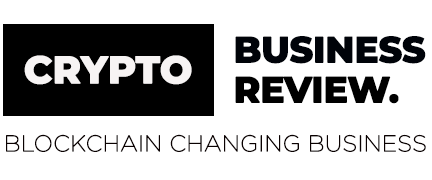The promises of blockchain as a tool for learning are many. But which are realistic, and which are mere pipe dreams? These industry insiders discussed what they see as the most realistic benefits that blockchain technology could bring to the educational space:
1. Miguel Caballero, CEO of Tutellus
“It’s all about motivation and user behavior. Studying is a hard and expensive issue. Motivation is low and user behavior is poor. Blockchain can introduce a token model to empower people through education, tokenizing knowledge and other kinds of digital assets.”
2. Richard Maaghul, Founder and CEO of ODEM
“We believe that the biggest benefit of blockchain technology is the ability for students, educators and employers to have ownership over the connections they make, course material shared, data provided and the education credential earned. Blockchain allows for direct, peer-to-peer connections, and as part of that technological architecture, also provides users with greater control over their actions and information. This is an incredible and much-needed step forward for the education industry as global communication, diversity, remote work and emerging career paths shape the future of what higher learning looks like. Blockchain technology helps to bring that future to fruition.”
3. Dr. Jennifer Jones, Educational Entrepreneur and Founder of Green Ivy Schools
“Blockchain can solve the glitch of globalization and finally liberate us to study and work more fluidly across geopolitical boundaries. It can also liberate the millions of people who want or need to create a personalized course of study to pursue specific professional pathways while sustaining life priorities (families, work, disadvantages). Blockchain provides an acceptable system of credentialing and tracking that makes nontraditional learning mainstream, exploding options and accelerating progress for the learner, the learning institutions and employers.”
4. Danielius Stasiulis, Co-founder of BitDegree
“Opportunity to self-organize the education community online in ways previously unimagined, breaking all the conventional education system norms and rules. The boring practical answer would be – much better interoperability of credentials.”
5. Ameer Rosic, Co-founder of Blockgeeks
“Stopping fraud, reducing overhead costs for keeping records and creating a better Web 3.0 diploma that incorporates skills to it. Imagine any company in the world will be able to click your online diploma and know it’s not fake and then within the diploma actually see your work portfolio.”
6. Chris Jagers, CEO of Learning Machine
“Convenience. Issuing digital records that are recipient owned and blockchain secured means that learners can now build their own lifelong record of achievement from across institutions and share those records directly with others when needed. Those who need to verify these records, like employers, can instantly know that the official record is trustworthy, greatly streamlining the entire process for everyone involved.”
7. Steven R. Gordon, Prof. of Information Technology Management, Babson College
“The number one benefit that blockchain brings to the institution is cost reduction. Secondary benefits include the possibility for micro-credentialing and incentivizing students with digital badges. The primary benefit it brings to students is transparency into their credentials, which are signed by the credentialing institutions.”
8. Carlos Acevedo, VP Content, Never Stop Marketing
“There are two benefits which are interchangeable: ownership and transferability. Education is highly personal. Take the situation some immigrants face. Their new home may not accept their university credentials, forcing them to work in a different field. The attempt of credential transfer is expensive and exploitative as individuals must pay for both translation and evaluation. Blockchain would eliminate these middlemen. If a blockchain based credential with universally accepted standards is adopted, professionals could bring their proof of professional experience worldwide. Doing so would unlock potential stifled by bureaucracies, middlemen, and countries around the world. Trust is in the blockchain.”
9. Inna Bogdanova, CEO and founder of Aplic.io
“The universal plus of blockchain technologies is, of course, the storage of verified information about the owners of the corresponding keys. For universities and colleges, this means much faster interaction with students and their potential recruiters. It is not a secret that today employers have to wait a rather long time — sometimes several weeks — to check the authenticity of students’ documents. Blockchain offers near-instantaneous delivery of information with the security that all documentation is genuine. Educational institutions that avail of this technology will definitely stand well with both applicants and recruiters thanks to the lack of bureaucracy.”
10. Todd Thibodeaux, President and CEO of CompTIA
“Using the decentralized nature of blockchain could give students and educators more control over their own information without having to contact the institutions issuing the degrees or certifications. Additionally, educational institutions could use blockchain or cryptocurrencies to ease payment for services.”
11. Chun Hui Suen, Blockchain Lead at Kommerce
“Creating chains that allow students to build micro ecosystems would be an interesting approach to hands-on learning. For example there are universities that are creating internal blockchain ecosystems which you can use to purchase additional courses and events, buy things from the university’s store, pay tutors, etc.”
















